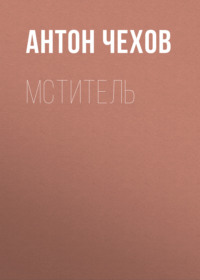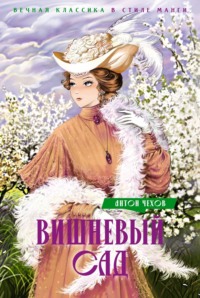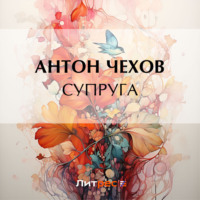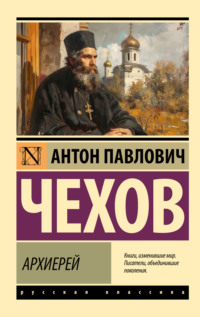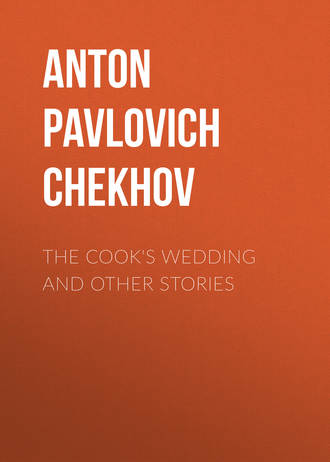 полная версия
полная версияThe Cook's Wedding and Other Stories
"What am I to say to him?" thought Yevgeny Petrovitch. "He's not listening to me. Obviously he does not regard either his misdoings or my arguments as serious. How am I to drive it home?"
The prosecutor got up and walked about the study.
"Formerly, in my time, these questions were very simply settled," he reflected. "Every urchin who was caught smoking was thrashed. The cowardly and faint-hearted did actually give up smoking, any who were somewhat more plucky and intelligent, after the thrashing took to carrying tobacco in the legs of their boots, and smoking in the barn. When they were caught in the barn and thrashed again, they would go away to smoke by the river.. and so on, till the boy grew up. My mother used to give me money and sweets not to smoke. Now that method is looked upon as worthless and immoral. The modern teacher, taking his stand on logic, tries to make the child form good principles, not from fear, nor from desire for distinction or reward, but consciously."
While he was walking about, thinking, Seryozha climbed up with his legs on a chair sideways to the table, and began drawing. That he might not spoil official paper nor touch the ink, a heap of half-sheets, cut on purpose for him, lay on the table together with a blue pencil.
"Cook was chopping up cabbage to-day and she cut her finger," he said, drawing a little house and moving his eyebrows. "She gave such a scream that we were all frightened and ran into the kitchen. Stupid thing! Natalya Semyonovna told her to dip her finger in cold water, but she sucked it.. And how could she put a dirty finger in her mouth! That's not proper, you know, papa!"
Then he went on to describe how, while they were having dinner, a man with a hurdy-gurdy had come into the yard with a little girl, who had danced and sung to the music.
"He has his own train of thought!" thought the prosecutor. "He has a little world of his own in his head, and he has his own ideas of what is important and unimportant. To gain possession of his attention, it's not enough to imitate his language, one must also be able to think in the way he does. He would understand me perfectly if I really were sorry for the loss of the tobacco, if I felt injured and cried… That's why no one can take the place of a mother in bringing up a child, because she can feel, cry, and laugh together with the child. One can do nothing by logic and morality. What more shall I say to him? What?"
And it struck Yevgeny Petrovitch as strange and absurd that he, an experienced advocate, who spent half his life in the practice of reducing people to silence, forestalling what they had to say, and punishing them, was completely at a loss and did not know what to say to the boy.
"I say, give me your word of honour that you won't smoke again," he said.
"Word of hon-nour!" carolled Seryozha, pressing hard on the pencil and bending over the drawing. "Word of hon-nour!"
"Does he know what is meant by word of honour?" Bykovsky asked himself. "No, I am a poor teacher of morality! If some schoolmaster or one of our legal fellows could peep into my brain at this moment he would call me a poor stick, and would very likely suspect me of unnecessary subtlety… But in school and in court, of course, all these wretched questions are far more simply settled than at home; here one has to do with people whom one loves beyond everything, and love is exacting and complicates the question. If this boy were not my son, but my pupil, or a prisoner on his trial, I should not be so cowardly, and my thoughts would not be racing all over the place!"
Yevgeny Petrovitch sat down to the table and pulled one of Seryozha's drawings to him. In it there was a house with a crooked roof, and smoke which came out of the chimney like a flash of lightning in zigzags up to the very edge of the paper; beside the house stood a soldier with dots for eyes and a bayonet that looked like the figure 4.
"A man can't be taller than a house," said the prosecutor.
Seryozha got on his knee, and moved about for some time to get comfortably settled there.
"No, papa!" he said, looking at his drawing. "If you were to draw the soldier small you would not see his eyes."
Ought he to argue with him? From daily observation of his son the prosecutor had become convinced that children, like savages, have their own artistic standpoints and requirements peculiar to them, beyond the grasp of grown-up people. Had he been attentively observed, Seryozha might have struck a grown-up person as abnormal. He thought it possible and reasonable to draw men taller than houses, and to represent in pencil, not only objects, but even his sensations. Thus he would depict the sounds of an orchestra in the form of smoke like spherical blurs, a whistle in the form of a spiral thread… To his mind sound was closely connected with form and colour, so that when he painted letters he invariably painted the letter L yellow, M red, A black, and so on.
Abandoning his drawing, Seryozha shifted about once more, got into a comfortable attitude, and busied himself with his father's beard. First he carefully smoothed it, then he parted it and began combing it into the shape of whiskers.
"Now you are like Ivan Stepanovitch," he said, "and in a minute you will be like our porter. Papa, why is it porters stand by doors? Is it to prevent thieves getting in?"
The prosecutor felt the child's breathing on his face, he was continually touching his hair with his cheek, and there was a warm soft feeling in his soul, as soft as though not only his hands but his whole soul were lying on the velvet of Seryozha's jacket.
He looked at the boy's big dark eyes, and it seemed to him as though from those wide pupils there looked out at him his mother and his wife and everything that he had ever loved.
"To think of thrashing him." he mused. "A nice task to devise a punishment for him! How can we undertake to bring up the young? In old days people were simpler and thought less, and so settled problems boldly. But we think too much, we are eaten up by logic.. The more developed a man is, the more he reflects and gives himself up to subtleties, the more undecided and scrupulous he becomes, and the more timidity he shows in taking action. How much courage and self-confidence it needs, when one comes to look into it closely, to undertake to teach, to judge, to write a thick book.."
It struck ten.
"Come, boy, it's bedtime," said the prosecutor. "Say good-night and go."
"No, papa," said Seryozha, "I will stay a little longer. Tell me something! Tell me a story.."
"Very well, only after the story you must go to bed at once."
Yevgeny Petrovitch on his free evenings was in the habit of telling Seryozha stories. Like most people engaged in practical affairs, he did not know a single poem by heart, and could not remember a single fairy tale, so he had to improvise. As a rule he began with the stereotyped: "In a certain country, in a certain kingdom," then he heaped up all kinds of innocent nonsense and had no notion as he told the beginning how the story would go on, and how it would end. Scenes, characters, and situations were taken at random, impromptu, and the plot and the moral came of itself as it were, with no plan on the part of the story-teller. Seryozha was very fond of this improvisation, and the prosecutor noticed that the simpler and the less ingenious the plot, the stronger the impression it made on the child.
"Listen," he said, raising his eyes to the ceiling. "Once upon a time, in a certain country, in a certain kingdom, there lived an old, very old emperor with a long grey beard, and.. and with great grey moustaches like this. Well, he lived in a glass palace which sparkled and glittered in the sun, like a great piece of clear ice. The palace, my boy, stood in a huge garden, in which there grew oranges, you know.. bergamots, cherries.. tulips, roses, and lilies-of-the-valley were in flower in it, and birds of different colours sang there… Yes… On the trees there hung little glass bells, and, when the wind blew, they rang so sweetly that one was never tired of hearing them. Glass gives a softer, tenderer note than metals… Well, what next? There were fountains in the garden… Do you remember you saw a fountain at Auntie Sonya's summer villa? Well, there were fountains just like that in the emperor's garden, only ever so much bigger, and the jets of water reached to the top of the highest poplar."
Yevgeny Petrovitch thought a moment, and went on:
"The old emperor had an only son and heir of his kingdom – a boy as little as you. He was a good boy. He was never naughty, he went to bed early, he never touched anything on the table, and altogether he was a sensible boy. He had only one fault, he used to smoke.."
Seryozha listened attentively, and looked into his father's eyes without blinking. The prosecutor went on, thinking: "What next?" He spun out a long rigmarole, and ended like this:
"The emperor's son fell ill with consumption through smoking, and died when he was twenty. His infirm and sick old father was left without anyone to help him. There was no one to govern the kingdom and defend the palace. Enemies came, killed the old man, and destroyed the palace, and now there are neither cherries, nor birds, nor little bells in the garden… That's what happened."
This ending struck Yevgeny Petrovitch as absurd and naïve, but the whole story made an intense impression on Seryozha. Again his eyes were clouded by mournfulness and something like fear; for a minute he looked pensively at the dark window, shuddered, and said, in a sinking voice:
"I am not going to smoke any more.."
When he had said good-night and gone away his father walked up and down the room and smiled to himself.
"They would tell me it was the influence of beauty, artistic form," he meditated. "It may be so, but that's no comfort. It's not the right way, all the same… Why must morality and truth never be offered in their crude form, but only with embellishments, sweetened and gilded like pills? It's not normal… It's falsification.. deception.. tricks.."
He thought of the jurymen to whom it was absolutely necessary to make a "speech," of the general public who absorb history only from legends and historical novels, and of himself and how he had gathered an understanding of life not from sermons and laws, but from fables, novels, poems.
"Medicine should be sweet, truth beautiful, and man has had this foolish habit since the days of Adam.. though, indeed, perhaps it is all natural, and ought to be so… There are many deceptions and delusions in nature that serve a purpose."
He set to work, but lazy, intimate thoughts still strayed through his mind for a good while. Overhead the scales could no longer be heard, but the inhabitant of the second storey was still pacing from one end of the room to another.
A CLASSICAL STUDENT
BEFORE setting off for his examination in Greek, Vanya kissed all the holy images. His stomach felt as though it were upside down; there was a chill at his heart, while the heart itself throbbed and stood still with terror before the unknown. What would he get that day? A three or a two? Six times he went to his mother for her blessing, and, as he went out, asked his aunt to pray for him. On the way to school he gave a beggar two kopecks, in the hope that those two kopecks would atone for his ignorance, and that, please God, he would not get the numerals with those awful forties and eighties.
He came back from the high school late, between four and five. He came in, and noiselessly lay down on his bed. His thin face was pale. There were dark rings round his red eyes.
"Well, how did you get on? How were you marked?" asked his mother, going to his bedside.
Vanya blinked, twisted his mouth, and burst into tears. His mother turned pale, let her mouth fall open, and clasped her hands. The breeches she was mending dropped out of her hands.
"What are you crying for? You've failed, then?" she asked.
"I am plucked… I got a two."
"I knew it would be so! I had a presentiment of it," said his mother. "Merciful God! How is it you have not passed? What is the reason of it? What subject have you failed in?"
"In Greek… Mother, I.. They asked me the future of phero, and I.. instead of saying oisomai said opsomai. Then.. then there isn't an accent, if the last syllable is long, and I.. I got flustered… I forgot that the alpha was long in it.. I went and put in the accent. Then Artaxerxov told me to give the list of the enclitic particles… I did, and I accidentally mixed in a pronoun.. and made a mistake.. and so he gave me a two… I am a miserable person… I was working all night.. I've been getting up at four o'clock all this week.."
"No, it's not you but I who am miserable, you wretched boy! It's I that am miserable! You've worn me to a threadpaper, you Herod, you torment, you bane of my life! I pay for you, you good-for-nothing rubbish; I've bent my back toiling for you, I'm worried to death, and, I may say, I am unhappy, and what do you care? How do you work?"
"I.. I do work. All night… You've seen it yourself."
"I prayed to God to take me, but He won't take me, a sinful woman.. You torment! Other people have children like everyone else, and I've one only and no sense, no comfort out of him. Beat you? I'd beat you, but where am I to find the strength? Mother of God, where am I to find the strength?"
The mamma hid her face in the folds of her blouse and broke into sobs. Vanya wriggled with anguish and pressed his forehead against the wall. The aunt came in.
"So that's how it is… Just what I expected," she said, at
once guessing what was wrong, turning pale and clasping her hands.
"I've been depressed all the morning… There's trouble coming,
I thought.. and here it's come.."
"The villain, the torment!"
"Why are you swearing at him?" cried the aunt, nervously pulling her coffee-coloured kerchief off her head and turning upon the mother. "It's not his fault! It's your fault! You are to blame! Why did you send him to that high school? You are a fine lady! You want to be a lady? A-a-ah! I dare say, as though you'll turn into gentry! But if you had sent him, as I told you, into business.. to an office, like my Kuzya.. here is Kuzya getting five hundred a year… Five hundred roubles is worth having, isn't it? And you are wearing yourself out, and wearing the boy out with this studying, plague take it! He is thin, he coughs.. just look at him! He's thirteen, and he looks no more than ten."
"No, Nastenka, no, my dear! I haven't thrashed him enough, the torment! He ought to have been thrashed, that's what it is! Ugh.. Jesuit, Mahomet, torment!" she shook her fist at her son. "You want a flogging, but I haven't the strength. They told me years ago when he was little, 'Whip him, whip him!' I didn't heed them, sinful woman as I am. And now I am suffering for it. You wait a bit! I'll flay you! Wait a bit.."
The mamma shook her wet fist, and went weeping into her lodger's room. The lodger, Yevtihy Kuzmitch Kuporossov, was sitting at his table, reading "Dancing Self-taught." Yevtihy Kuzmitch was a man of intelligence and education. He spoke through his nose, washed with a soap the smell of which made everyone in the house sneeze, ate meat on fast days, and was on the look-out for a bride of refined education, and so was considered the cleverest of the lodgers. He sang tenor.
"My good friend," began the mamma, dissolving into tears. "If you would have the generosity – thrash my boy for me… Do me the favour! He's failed in his examination, the nuisance of a boy! Would you believe it, he's failed! I can't punish him, through the weakness of my ill-health… Thrash him for me, if you would be so obliging and considerate, Yevtihy Kuzmitch! Have regard for a sick woman!"
Kuporossov frowned and heaved a deep sigh through his nose. He thought a little, drummed on the table with his fingers, and sighing once more, went to Vanya.
"You are being taught, so to say," he began, "being educated, being given a chance, you revolting young person! Why have you done it?"
He talked for a long time, made a regular speech. He alluded to science, to light, and to darkness.
"Yes, young person."
When he had finished his speech, he took off his belt and took Vanya by the hand.
"It's the only way to deal with you," he said. Vanya knelt down submissively and thrust his head between the lodger's knees. His prominent pink ears moved up and down against the lodger's new serge trousers, with brown stripes on the outer seams.
Vanya did not utter a single sound. At the family council in the evening, it was decided to send him into business.
VANKA
VANKA ZHUKOV, a boy of nine, who had been for three months apprenticed to Alyahin the shoemaker, was sitting up on Christmas Eve. Waiting till his master and mistress and their workmen had gone to the midnight service, he took out of his master's cupboard a bottle of ink and a pen with a rusty nib, and, spreading out a crumpled sheet of paper in front of him, began writing. Before forming the first letter he several times looked round fearfully at the door and the windows, stole a glance at the dark ikon, on both sides of which stretched shelves full of lasts, and heaved a broken sigh. The paper lay on the bench while he knelt before it.
"Dear grandfather, Konstantin Makaritch," he wrote, "I am writing you a letter. I wish you a happy Christmas, and all blessings from God Almighty. I have neither father nor mother, you are the only one left me."
Vanka raised his eyes to the dark ikon on which the light of his candle was reflected, and vividly recalled his grandfather, Konstantin Makaritch, who was night watchman to a family called Zhivarev. He was a thin but extraordinarily nimble and lively little old man of sixty-five, with an everlastingly laughing face and drunken eyes. By day he slept in the servants' kitchen, or made jokes with the cooks; at night, wrapped in an ample sheepskin, he walked round the grounds and tapped with his little mallet. Old Kashtanka and Eel, so-called on account of his dark colour and his long body like a weasel's, followed him with hanging heads. This Eel was exceptionally polite and affectionate, and looked with equal kindness on strangers and his own masters, but had not a very good reputation. Under his politeness and meekness was hidden the most Jesuitical cunning. No one knew better how to creep up on occasion and snap at one's legs, to slip into the store-room, or steal a hen from a peasant. His hind legs had been nearly pulled off more than once, twice he had been hanged, every week he was thrashed till he was half dead, but he always revived.
At this moment grandfather was, no doubt, standing at the gate, screwing up his eyes at the red windows of the church, stamping with his high felt boots, and joking with the servants. His little mallet was hanging on his belt. He was clasping his hands, shrugging with the cold, and, with an aged chuckle, pinching first the housemaid, then the cook.
"How about a pinch of snuff?" he was saying, offering the women his snuff-box.
The women would take a sniff and sneeze. Grandfather would be indescribably delighted, go off into a merry chuckle, and cry:
"Tear it off, it has frozen on!"
They give the dogs a sniff of snuff too. Kashtanka sneezes, wriggles her head, and walks away offended. Eel does not sneeze, from politeness, but wags his tail. And the weather is glorious. The air is still, fresh, and transparent. The night is dark, but one can see the whole village with its white roofs and coils of smoke coming from the chimneys, the trees silvered with hoar frost, the snowdrifts. The whole sky spangled with gay twinkling stars, and the Milky Way is as distinct as though it had been washed and rubbed with snow for a holiday..
Vanka sighed, dipped his pen, and went on writing:
"And yesterday I had a wigging. The master pulled me out into the yard by my hair, and whacked me with a boot-stretcher because I accidentally fell asleep while I was rocking their brat in the cradle. And a week ago the mistress told me to clean a herring, and I began from the tail end, and she took the herring and thrust its head in my face. The workmen laugh at me and send me to the tavern for vodka, and tell me to steal the master's cucumbers for them, and the master beats me with anything that comes to hand. And there is nothing to eat. In the morning they give me bread, for dinner, porridge, and in the evening, bread again; but as for tea, or soup, the master and mistress gobble it all up themselves. And I am put to sleep in the passage, and when their wretched brat cries I get no sleep at all, but have to rock the cradle. Dear grandfather, show the divine mercy, take me away from here, home to the village. It's more than I can bear. I bow down to your feet, and will pray to God for you for ever, take me away from here or I shall die."
Vanka's mouth worked, he rubbed his eyes with his black fist, and gave a sob.
"I will powder your snuff for you," he went on. "I will pray for you, and if I do anything you can thrash me like Sidor's goat. And if you think I've no job, then I will beg the steward for Christ's sake to let me clean his boots, or I'll go for a shepherd-boy instead of Fedka. Dear grandfather, it is more than I can bear, it's simply no life at all. I wanted to run away to the village, but I have no boots, and I am afraid of the frost. When I grow up big I will take care of you for this, and not let anyone annoy you, and when you die I will pray for the rest of your soul, just as for my mammy's."
"Moscow is a big town. It's all gentlemen's houses, and there are lots of horses, but there are no sheep, and the dogs are not spiteful. The lads here don't go out with the star, and they don't let anyone go into the choir, and once I saw in a shop window fishing-hooks for sale, fitted ready with the line and for all sorts of fish, awfully good ones, there was even one hook that would hold a forty-pound sheat-fish. And I have seen shops where there are guns of all sorts, after the pattern of the master's guns at home, so that I shouldn't wonder if they are a hundred roubles each… And in the butchers' shops there are grouse and woodcocks and fish and hares, but the shopmen don't say where they shoot them."
"Dear grandfather, when they have the Christmas tree at the big house, get me a gilt walnut, and put it away in the green trunk. Ask the young lady Olga Ignatyevna, say it's for Vanka."
Vanka gave a tremulous sigh, and again stared at the window. He remembered how his grandfather always went into the forest to get the Christmas tree for his master's family, and took his grandson with him. It was a merry time! Grandfather made a noise in his throat, the forest crackled with the frost, and looking at them Vanka chortled too. Before chopping down the Christmas tree, grandfather would smoke a pipe, slowly take a pinch of snuff, and laugh at frozen Vanka… The young fir trees, covered with hoar frost, stood motionless, waiting to see which of them was to die. Wherever one looked, a hare flew like an arrow over the snowdrifts.. Grandfather could not refrain from shouting: "Hold him, hold him.. hold him! Ah, the bob-tailed devil!"
When he had cut down the Christmas tree, grandfather used to drag it to the big house, and there set to work to decorate it… The young lady, who was Vanka's favourite, Olga Ignatyevna, was the busiest of all. When Vanka's mother Pelageya was alive, and a servant in the big house, Olga Ignatyevna used to give him goodies, and having nothing better to do, taught him to read and write, to count up to a hundred, and even to dance a quadrille. When Pelageya died, Vanka had been transferred to the servants' kitchen to be with his grandfather, and from the kitchen to the shoemaker's in Moscow.
"Do come, dear grandfather," Vanka went on with his letter. "For Christ's sake, I beg you, take me away. Have pity on an unhappy orphan like me; here everyone knocks me about, and I am fearfully hungry; I can't tell you what misery it is, I am always crying. And the other day the master hit me on the head with a last, so that I fell down. My life is wretched, worse than any dog's… I send greetings to Alyona, one-eyed Yegorka, and the coachman, and don't give my concertina to anyone. I remain, your grandson, Ivan Zhukov. Dear grandfather, do come."
Vanka folded the sheet of writing-paper twice, and put it into an envelope he had bought the day before for a kopeck… After thinking a little, he dipped the pen and wrote the address:



